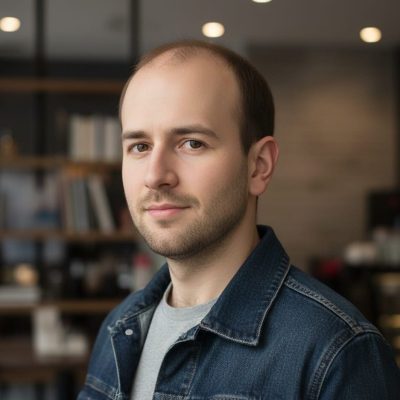
An unusual spectacle and a visit to Washington in early November. A video of Transitional Phase President Ahmad al‑Sharaà, Foreign Minister al‑Sheibani, and officers from the International Coalition casually playing basketball in a Damascus court. Friendly smiles, an upbeat rhythm, and a head of state attempting a lay‑up he would later replicate diplomatically—only this time in Washington.
By Rafic Taleb
The footage, widely circulated by activists, portrayed a sanitised, almost cheerful scene of cooperation between al‑Sharaà and Coalition officials. It was a soft‑power moment, a symbolic handshake in athletic form. But the irony, of course, is that the most decisive game in al‑Sharaà’s political career was not being played on a polished court in Damascus. It was scheduled—without his knowledge—4,000 miles away.
Or rather, it wasn’t scheduled at all.
A Surprise Trip to Washington: Delivering the “Keys to Syria”
Four days after the now‑famous basketball game, al‑Sharaà appeared in Washington in a visit that did not exist on President Trump’s agenda. The sudden trip, initiated at French urging, followed Paris's conclusion that al‑Sharaà was unable to fulfil the commitments he had made before taking office.
France had already “tested” him when it requested the elimination of the French jihadist camp in Idlib—a mission he failed spectacularly. The test confirmed what many had suspected: al‑Sharaà’s promises exceeded his capabilities.
In Washington, al‑Sharaà arrived carrying what some officials sarcastically described as “the keys to Syria.” His public pretext was to sign Syria’s “accession” to an anti‑terrorism coalition agreement, although none of the 72 member states have ever signed such a document. The explanation served merely as political varnish.
The real purpose of the summons was blunt:
Will you eliminate jihadists in Syria, and do you need help?
The conditions were equally blunt:
Any assistance requires total compliance with the Coalition’s decisions.
In other words, al‑Sharaà was asked to relinquish sovereignty over the country’s security future.
And he agreed.
Among the first decisions presented to him was the demand for a complete Turkish withdrawal from the Syrian theatre, because no counter‑terrorism campaign was possible. At the same time, Ankara remained embedded in the conflict.
UN Resolution 2799: Saving Himself, Sacrificing His Allies
The timing of al‑Sharaà’s visit coincided with the issuance of UN Security Council Resolution 2799, which quietly removed al‑Sharaà and his Interior Minister from terrorism watchlists. This diplomatic cleaning of their records came with a sharp hook. If the Syrian government violated the newly imposed operational constraints, Syria could be placed under Chapter VII, enabling forceful international intervention.
In short, al‑Sharaà saved himself, but not his comrades.
The resolution effectively placed jihadist factions on a conveyor belt toward elimination. Among those targeted:
The Beginning of the Purge
Upon returning from Washington, al‑Sharaà reportedly began supplying the Coalition with coordinates of jihadist leaders inside Syria. One of the most visible examples was the missile strike on the Mezzeh 86 area, publicly described as a training accident but understood by observers as a precise Coalition‑executed assassination.
More strikes will follow, targeting networks that once fought beside him.
The irony is profound: al‑Sharaà rose to power with jihadist factions as his backbone, and now finds himself—like a coach switching sides at halftime—helping the opposing team eliminate his former players.
Meanwhile, his repeated meetings with the SDF have produced little movement, as Turkey remains the immovable obstacle preventing any Kurdish‑Damascus arrangement. Time, however, has proven the Kurds’ quiet ally, bringing them incrementally closer to autonomy east of the Euphrates.
A Coup Disguised as Diplomacy
A week before al‑Sharaà’s Washington trip, jihadist leaders had held a confidential meeting discussing his “constitutional declaration” and the need to select a successor should he be assassinated. They sensed betrayal before betrayal became visible.
Washington offered the perfect stage for al‑Sharaà’s counter‑coup—not against the state, but against the very factions that empowered his rise. He required a symbolic “victory” to present himself to Western capitals as a decisive statesman, not a hostage of foreign jihadists within his own administration.
The basketball clip, in hindsight, was not an odd distraction but a metaphor: al‑Sharaà warming up before switching teams mid‑game.
The Road Ahead: Fragmentation and Foreign Zones of Influence
The impending war against jihadist groups will devastate Sunni Arab areas, deepening poverty, hunger, and displacement. Only those east of the Euphrates—under SDF control—may avoid the worst of it.
The vacuum will invite predictable actors:
Syria, once fractured, risks becoming fully partitioned into de facto protectorates.
A President out of Allies
Within al‑Sharaà’s own structure, cracks are widening. Faction leaders have lost trust, sensing that he may be preparing—under Coalition guidance—to eliminate them before they can eliminate him.
The final chapter has not yet been written, but one thing is unmistakably clear:
The Syrian president may have been playing basketball on November 8. Still, by November 11, he was playing a far more dangerous game—one whose rules, referees, and outcomes are no longer his to influence.
Sometimes history is not a chessboard. Sometimes it’s just a basketball court where the losing team doesn’t realise the game ended long ago.







Shokrun, Doctor, for this superbly written exposé of Syria's current political situation.